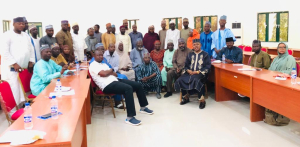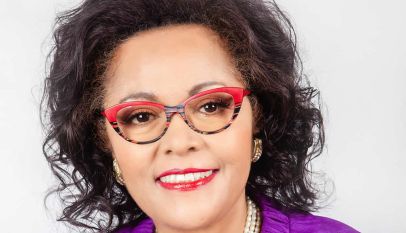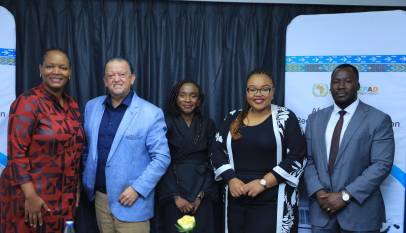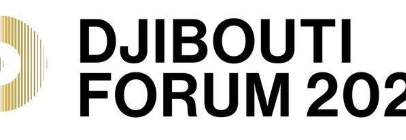2023: KanSLAM seeks more collaboration with Kano govt on Human Capital Development
The Kano State-Led Accountability Mechanism (KanSLAM) recently held a strategic review, learning and experience sharing workshop as well as developed its workplan for 2023, supported by the Foreign, Commonwealth and Development Office’s (FCDO) funded Lafiya programme.

Public accountability is a tool for enhancing transparency between government and the citizenry. Thus, accountability is a fundamental instrument for preventing misappropriation of public resources and ensuring probity in government spending.
The civil society remains a very crucial mechanism for fostering public accountability as Civil Society Organisations (CSOs) monitor governments’ budgets and budget performance – not only to ensure transparency, but also to ensure the budgets reflect the true wishes of the citizens. The CSOs carry out their duties in collaboration with the media, empowered by Section 22 of the 1999 Nigerian Constitution to hold the government accountable.
Moreover, building accountable institutions is one of the targets of Goal 16 of the UN’s 2030 Agenda for Sustainable Development, which focuses on promoting peaceful and inclusive societies for sustainable development, providing access to justice for all and building effective, accountable and inclusive institutions at all levels.
In Kano state, a coalition of CSOs, media and government officials under the aegis of the Kano State-Led Accountability Mechanism (KanSLAM), is working to foster transparency and accountability across the state’s Ministries, Department and Agencies (MDAs) through evidence-based advocacy geared at achieving sustainable human development.
KanSLAM, as part of its efforts to entrench public accountability across health, education, and youth development, among other sectors, and with support from the FCDO Lafiya programme, recently held a strategic review, learning and experience-sharing and 2023 workplan development workshop in Kaduna state.
In 2023, KanSLAM plans to embark on more collaborations with the relevant MDAs so as to improve various indices around Human Capital Development (HCD), particularly health and education, in Kano state. Accordingly, the coalition will continue to prioritize holding the government accountable for its annual budgetary spending in relation to key HCD indicators.
Moreover, the 2023 KanSLAM workplan seeks to consolidate transparency efforts and minimise bureaucracies and bottlenecks within the government’s accountability domain. Ms Maimuna Yakubu, the co-chair of KanSLAM said the workshop sought to address pending accountability challenges across various MDAs of Kano State in 2023, while assessing the successes, challenges and way forward for the Mechanism.
Ms Yakubu said KanSLAM had, throughout the outgoing 2022, engaged the state government on increased budgetary allocation and release for the health and education sectors, interfacing with the ministries of health and education to get drafts of their deeds in an effort to synthesize their work towards ensuring accountability in the two sectors.
The co-chair said KanSLAM had also engaged with the community-level Ward Development Committees (WDCs), strengthening their capacity to track the implementation of health programmes by the government, development partners and the private sector, so as to guarantee access to quality healthcare services at the grassroots.
WDCs are made up of prominent community leaders, including religious and traditional leaders, who are saddled with the responsibility of overseeing development at the ward level, including encouraging community involvement in health issues so as to create local accountability for healthcare services.
Ms Yakubu appreciated the Kano government for recognizing KanSLAM’s work, by appointing its members to the governing boards of health sector agencies in the state, adding that her coalition would maintain its advocacy for the sustenance of a minimum of 15% budgetary allocation for health as well as ensuring commensurate releases.
In addition, she described her coalition as the Kano government’s partners in progress, hence the inclusion of government representatives in it. However, she assured that her coalition had the best interest of the community at heart and would therefore make sure healthcare services reach the people of the state.
While speaking on advocacy as a veritable tool for achieving accountability across MDAs in Kano state, Mr Mohammed Gama, an advocacy expert, encouraged KanSLAM to always rely on facts and evidence in their advocacy so as to manifestly bring out the key challenges to be addressed by relevant policymakers and stakeholders in the health and education sectors.
Gama urged the SLAM to utilize data from CSOs, testimonies from victims, interviews, media reportage, pictures and videos amongst other necessary evidence to engage key policymakers and stakeholders while demanding accountability through advocacy.
As part of the workshop’s peer learning exercise, the Kaduna State Maternal Accountability Mechanism (KADMAM), KanSLAM’s counterpart in Kaduna state, shared advocacy and accountability strategies and success stories with their Kano counterparts.
Some of the success stories highlighted by Mustapha Jumare, the co-chair of KADMAM, were the Kaduna government’s renovation and upgrade of 255 ward facilities across the state; the employment of 1,025 staff in different subsectors of the state’s health sector; as well as a strong partnership with the three Basic Healthcare Provision Fund (BHCPF) gateways for accountability on the contributory health scheme implementation in Kaduna, among others.










